Checking for Sphynx Cat Health Issues: Why Regular Vet Visits Matter
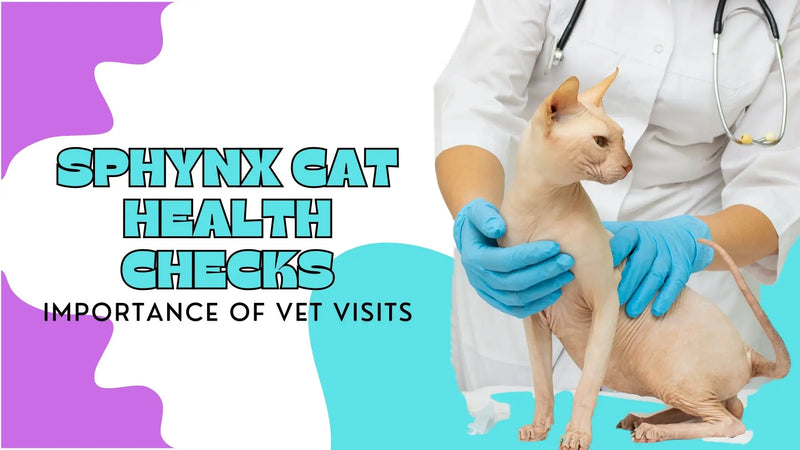
Owning a Sphynx cat comes with its own set of responsibilities, especially when it comes to maintaining their health. These unique, hairless beauties require special care, and regular vet check-ups are a key part of keeping your feline companion happy and healthy.
Unlike other breeds, Sphynx cats lack the natural protection of fur, making them more susceptible to skin conditions, temperature fluctuations, and certain genetic health issues. Because of these unique needs, a proactive approach to Sphynx cat health is essential—and that starts with routine veterinary visits.
From skin care and diet to detecting hidden illnesses, your vet will help ensure your cat gets the best care possible. Let's break down why these visits matter so much and how they can help manage common Aphynx health issues for a long, vibrant life.
Why Sphynx Cats Need Special Attention
Sphynx cats aren't like other felines—they have distinct physical characteristics and genetic predispositions that require extra care and vigilance. Their most noticeable trait—their lack of fur—brings about several Sphynx cat health challenges that owners need to be aware of:
1. Skin Sensitivity
Since they don't have fur to absorb oils, Sphynx cats can develop oily skin buildup, acne, and even rashes if not properly cared for. Their skin also lacks protection against the elements, making them vulnerable to sunburn and cold temperatures. Monitoring these Sphynx health issues requires regular professional assessment.
2. Temperature Regulation
Without a thick coat of fur, Sphynx cats struggle to regulate body temperature effectively. They are more prone to feeling cold and may seek warm spots around the house. On the other hand, in hot weather, they are at higher risk of heat sensitivity and sunburn. These temperature-related Sphynx cat health concerns need special attention.
3. Increased Metabolic Rate
Because they use more energy to keep warm, Sphynx cats have a higher metabolism than most breeds. This means they require more frequent meals and a well-balanced diet to maintain their energy levels.
4. Genetic Health Risks
Sphynx cats are known to be prone to certain hereditary conditions, such as:
-
Hypertrophic Cardiomyopathy (HCM) – A common heart disease in cats, which thickens the heart walls and affects circulation.
-
Respiratory Issues – Their unique facial structure may sometimes lead to breathing difficulties.
-
Gastrointestinal Sensitivities – Some Sphynx cats have delicate digestive systems, leading to food allergies or intolerances.
Because of these unique traits, routine veterinary care is essential to monitor Sphynx cat health and address potential issues early. Your vet will help tailor care recommendations specific to your cat’s needs.
Spotting Health Issues Early
Cats are experts at masking pain and illness, and the Sphynx is no exception. This instinctive behavior can make it challenging for owners to recognize when their pet is experiencing Sphynx health issues. By the time symptoms become noticeable, a health problem may already be in its advanced stages.
Regular vet visits are crucial for early detection of Sphynx cat health problems. During routine check-ups, your vet can assess:
-
Weight changes – Sudden weight gain or loss could indicate metabolic issues, digestive disorders, or underlying illness.
-
Skin and coat condition – Signs of excessive oiliness, dry patches, redness, or acne may point to allergies or infections.
-
Heart and lung function – Since Sphynx cats are prone to hypertrophic cardiomyopathy (HCM), regular heart screenings help catch abnormalities early.
-
Oral health – Dental disease is common in cats and can lead to painful infections or trouble eating.
Common warning signs of illness in Sphynx cats include:
-
Decreased appetite or increased thirst
-
Unusual lethargy or excessive sleeping
-
Changes in vocalization (meowing more or less than usual)
-
Labored breathing or persistent coughing
-
Unexplained weight fluctuations
-
Vomiting, diarrhea, or constipation
-
Excessive scratching, licking, or changes in skin texture
Prevention is always better than cure! That's why we recommend taking a proactive approach to managing Sphynx health issues. To dive deeper into common conditions affecting this breed, check out our comprehensive guide: Sphynx Cat Health Issues: Common Concerns.
Vaccinations and Preventative Care
Vaccinations are essential to protect your Sphynx cat from common feline diseases. Even indoor cats can be exposed to viruses brought in on shoes, clothing, or other pets. Since Sphynx cats have a sensitive immune system, staying up to date with core vaccines—FVRCP (feline viral rhinotracheitis, calicivirus, panleukopenia) and rabies—is crucial. Your vet may also recommend additional vaccines based on your cat's lifestyle and risk factors.
Beyond vaccinations, preventative care helps keep your Sphynx cat's health in top condition. These cats are prone to skin infections and ear wax buildup, so regular vet check-ups ensure these issues are managed early. Your vet will also provide guidance on:
-
Flea, tick, and parasite prevention to avoid infestations.
-
Routine deworming to prevent digestive issues.
-
Ear and skin care routines tailored to your cat's needs.
By staying proactive, you can prevent Sphynx health problems before they become serious.
Don't Forget About Dental Health
Dental disease is common in cats and can lead to pain, infections, and tooth loss if ignored. Bad breath, excessive drooling, or difficulty eating are signs of gingivitis or periodontal disease, which can affect overall Sphynx health.
Brushing your cat's teeth regularly and offering dental treats can help reduce plaque buildup. Your vet may also recommend professional cleanings during check-ups to maintain strong, healthy teeth. Prioritizing dental care ensures your Sphynx can enjoy mealtime without discomfort and prevents one of the most common health issues.

Nutrition: Tailoring the Right Diet
Sphynx cats have high metabolisms and require nutrient-dense food to maintain energy and skin health. Their diet should be tailored to age, activity level, and specific health concerns.
Choosing the Right Food
Kittens need high-protein, calorie-rich meals for growth, while adults require balanced nutrition to sustain their energy. Seniors may benefit from joint-supporting supplements and easy-to-digest proteins. Since Sphynx cats can have sensitive stomachs, your vet may recommend special diets for allergies or digestive issues, which are common Sphynx cat health challenges.
Hydration and Meal Timing
Sphynx cats can be prone to dehydration, so fresh water should always be available. Wet food can help supplement hydration, and small, frequent meals support digestion and energy levels—an important consideration for maintaining optimal Sphynx health.
Watching for Behavioral Changes
Sometimes, a change in your Sphynx’s behavior can signal a health problem. Since cats are instinctively good at hiding discomfort, subtle shifts in their energy levels, social behavior, or vocalization patterns could signal an underlying problem.
Signs to Watch For
If your normally playful and energetic Sphynx becomes suddenly lethargic, withdrawn, or avoids interaction, it may be feeling unwell. An increase in vocalization—such as excessive meowing or yowling—can indicate pain, anxiety, or discomfort. Similarly, a cat that suddenly stops grooming or starts hiding could be experiencing stress or illness.
Keeping an eye on changes in appetite, litter box habits, or activity levels can help you detect potential Sphynx cat health problems early. If you notice any concerning behavioral shifts, scheduling a vet visit can help identify and address any underlying medical conditions before they worsen.
Skin Care and Allergies
Without fur to absorb natural skin oils, Sphynx cats are prone to oil buildup, acne, dryness, and sunburn. Their sensitive skin requires regular care to prevent irritation and infections.
Your vet may recommend weekly baths with a gentle, hypoallergenic cat shampoo to remove excess oil and dirt. Overbathing, however, can strip essential oils, leading to dryness. Wiping your cat’s skin with a damp cloth between baths can help maintain balance.
Since Sphynx cats are also susceptible to allergies, they may develop skin redness, rashes, or itchiness due to food sensitivities or environmental allergens. If you notice persistent skin irritation, your vet can help identify triggers and recommend treatments to keep your cat comfortable.
Managing Weight
A healthy weight is essential for your Sphynx cat’s overall well-being and mobility. Because they have a fast metabolism, they need a well-balanced diet, but overfeeding or underfeeding can lead to serious health problems.
Creating a Healthy Feeding Plan
Your vet can help determine the right portion sizes based on your cat’s age, activity level, and metabolism. Providing nutrient-rich meals with high protein and healthy fats is key to maintaining their energy levels while preventing obesity or malnutrition.
Regular playtime and exercise—such as interactive toys, climbing structures, or short training sessions—will help keep your Sphynx active and at a healthy weight.

Geriatric Care for Older Sphynx Cats
As your Sphynx cat ages, their energy levels, mobility, and health needs will change. Senior cats are more prone to joint pain, heart conditions, and kidney issues, making routine vet visits even more essential.
Supporting Your Senior Sphynx
To help your aging cat stay comfortable, your vet may recommend:
-
Joint supplements or a specialized diet to support mobility.
-
More frequent health screenings to monitor organ function and detect early signs of illness.
-
Soft bedding and easy access to food, water, and litter boxes to accommodate reduced mobility.
Understanding the lifespan and aging process of your Sphynx can help you provide the best care in their golden years. For more insights, check out "Sphynx Cat Lifespan" to learn how to keep your senior cat happy and healthy.
Final Thoughts
Regular vet check-ups aren't just a good idea—they're essential for addressing Sphynx cat health issues before they become serious problems. From early detection of health concerns to personalized advice on diet and behavior, these visits will help ensure your cat lives a long, happy life. Taking proactive steps with vet care means you're giving your Sphynx the best chance at maintaining optimal Sphynx health throughout their life.
Do you have concerns regarding the health status of your cat? You can contact us for more information. And if you want to adopt a kitten now, you can always visit and Check Our Available Hairless Sphynx Cats for Sale and learn about our Adoption Process to start. Embark this new journey with us, and do not miss out!
FAQs
1. How often should I take my Sphynx cat to the vet?
It’s recommended to schedule a vet visit at least once a year for a general check-up. If your cat is older, you might need to increase the frequency.
2. What vaccines does a Sphynx cat need?
Common vaccines include rabies, feline distemper, and feline leukemia. Your vet will tailor a vaccination schedule based on your cat’s needs.
3. What are the most common skin issues in Sphynx cats?
Sphynx cats can experience oil buildup, sunburn, and fungal infections. Regular check-ups can help prevent or manage these issues.
4. At what age is a Sphynx cat considered a senior?
Sphynx cats are typically considered seniors around 8 to 10 years old, though this can vary depending on your cat’s health and genetics.



























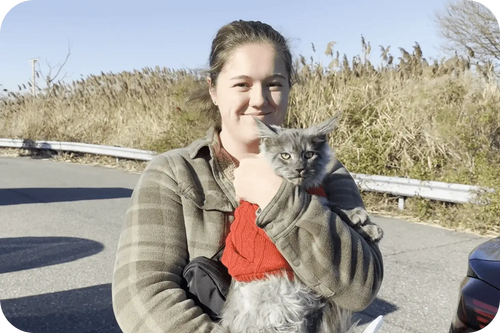
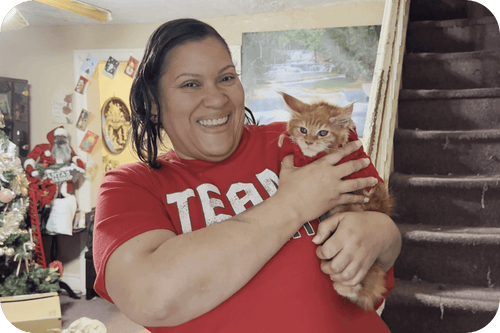
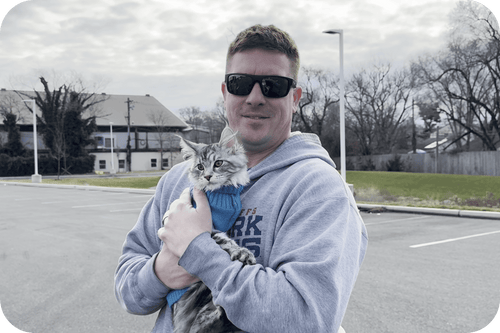




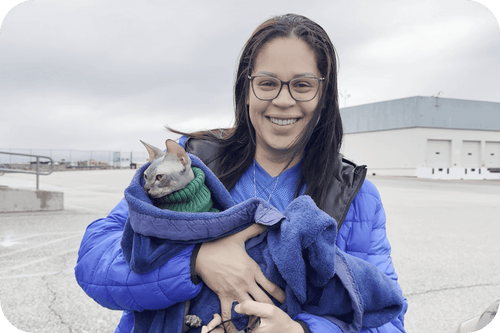

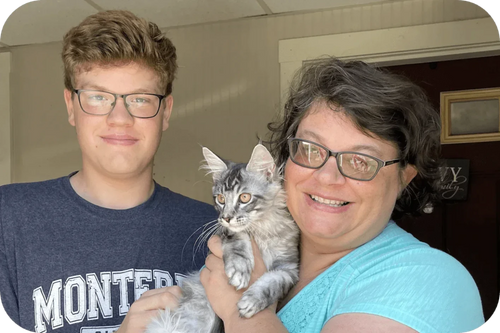
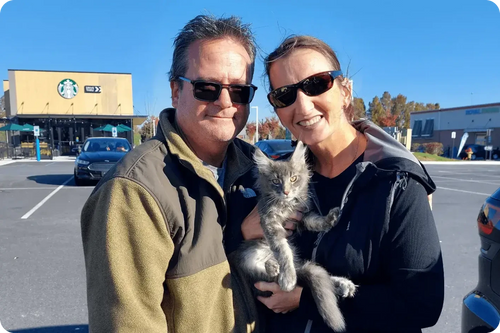


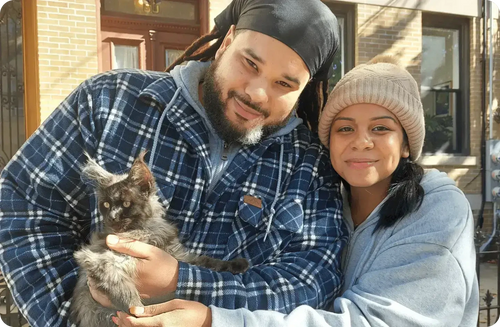
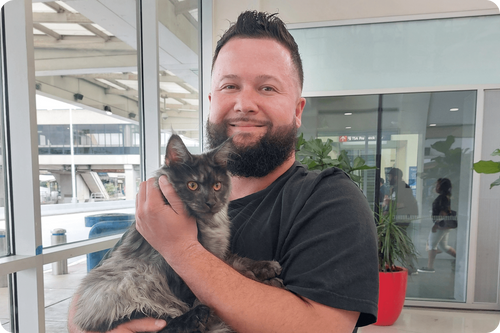











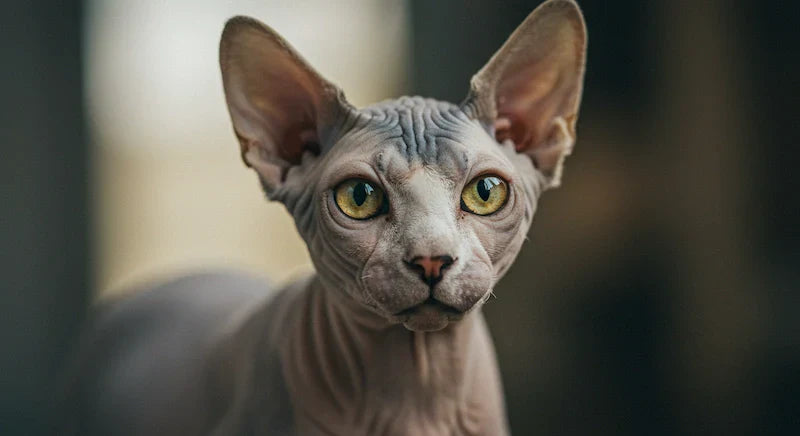
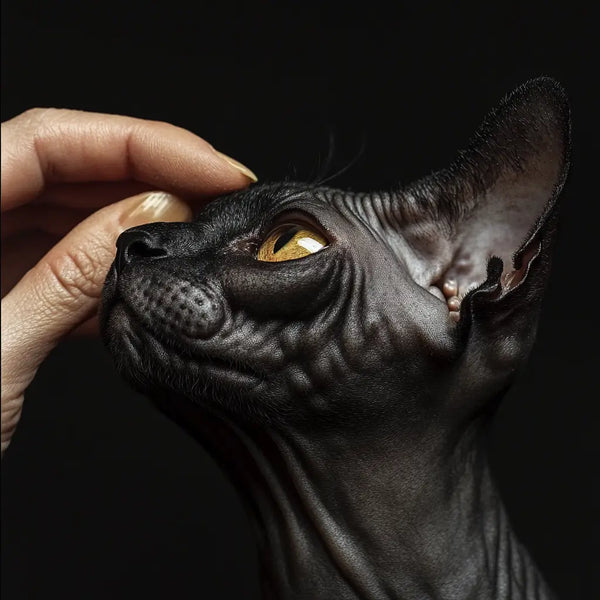

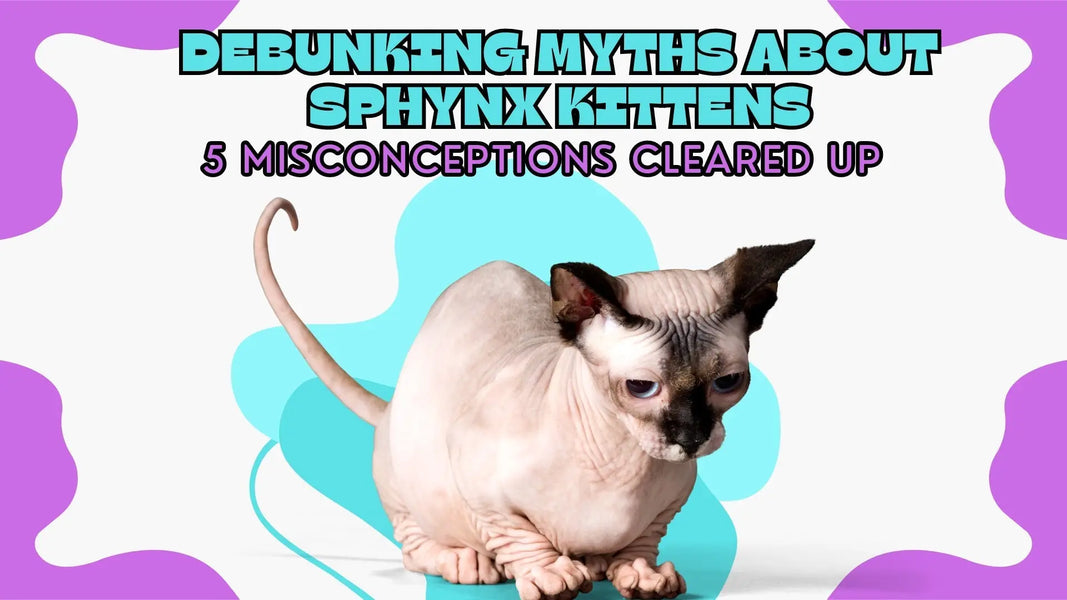





Comments(0)